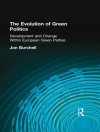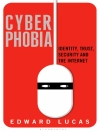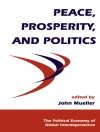For fascism, myth was reality—or was realer than the real. Fascist notions of the leader, the nation, power, and violence were steeped in mythic imagery and the fantasy of transcending history. A mythologized primordial past would inspire the heroic overthrow of a debased present to achieve a violently redeemed future. What is distinctive about fascist mythology, and how does this aspect of fascism help explain its perils in the past and present?
Federico Finchelstein draws on a striking combination of thinkers—Jorge Luis Borges, Sigmund Freud, and Carl Schmitt—to consider fascism as a form of political mythmaking. He shows that Borges’s literary and critical work and Freud’s psychoanalytic writing both emphasize the mythical and unconscious dimensions of fascist politics. Finchelstein considers their ideas of the self, violence, and the sacred as well as the relationship between the victims of fascist violence and the ideological myths of its perpetrators. He draws on Freud and Borges to analyze the work of a variety of Latin American and European fascist intellectuals, with particular attention to Schmitt’s political theology. Contrasting their approaches to the logic of unreason, Finchelstein probes the limits of the dichotomy between myth and reason and shows the centrality of this opposition to understanding the ideology of fascism.
At a moment when forces redolent of fascism cast a shadow over world affairs, this book provides a timely historical and critical analysis of the dangers of myth in modern politics.
قائمة المحتويات
Preface
Introduction
1. Freud, Fascism, and the Return of the Myth
2. Borges and Fascism as Mythology
3. Borges and the Persistence of Myth
4. A Fascist History: Carl Schmitt’s Political Theory of Myth
Conclusion
Acknowledgements
Notes
Index
عن المؤلف
Federico Finchelstein is professor of history at the New School for Social Research and Eugene Lang College. His books include
A Brief History of Fascist Lies (2020),
From Fascism to Populism in History (2017),
The Ideological Origins of the Dirty War: Fascism, Populism, and Dictatorship in Twentieth-Century Argentina (2014), and
Transatlantic Fascism: Ideology, Violence, and the Sacred in Argentina and Italy, 1919–1945 (2010).












